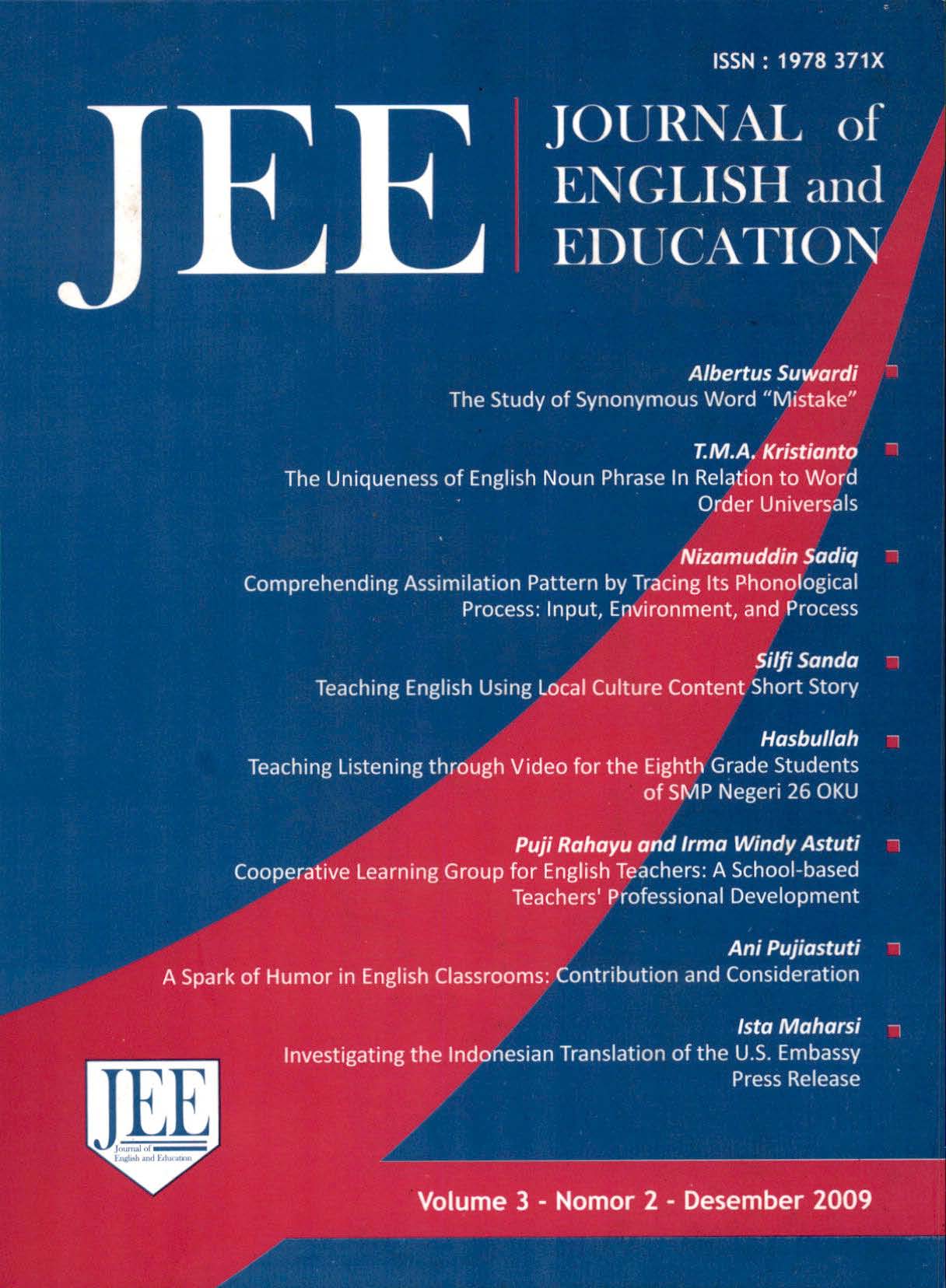Main Article Content
Abstract
This paper supports an idea that humor has a significant role in increasing the English learners' communicative competence. It is very common for teachers to present humor in English classrooms, whether it is purposely presented or spontaneously practiced in classroom activities. Yet, regardless of its significant contribution in language learning activities, it is highly likely that humor is one point that remains untouched in language learning. How many English textbooks containing humor in it? We hardly ever find any syllabi purposefully present the ability of students to tell or to understand jokes. Telling jokes in a serious classroom maybe considered as something inappropriate as it may distract the classroom activities. Therefore, spontaneous humor may sometimes be viewed as an 'off task' behavior. However, it is sometimes forgotten that understanding other people's joke may be one of the keys of understanding other cultures, and ,more importantly, building a relationship with people from other countries.
Keywords
Article Details
Copyright (c) 2016 JEE, Journal of English and Education

This work is licensed under a Creative Commons Attribution-ShareAlike 4.0 International License.
Authors who publish with this journal agree to the following terms:
- Authors retain copyright and grant the journal right of first publication with the work simultaneously licensed under a Creative Commons Attribution-ShareAlike 4.0 International License that allows others to share the work with an acknowledgment of the work's authorship and initial publication in this journal.
- Authors are able to enter into separate, additional contractual arrangements for the non-exclusive distribution of the journal's published version of the work (e.g., post it to an institutional repository or publish it in a book), with an acknowledgment of its initial publication in this journal.
- Authors are permitted and encouraged to post their work online (e.g., in institutional repositories or on their website) prior to and during the submission process, as it can lead to productive exchanges, as well as earlier and greater citation of published work (See The Effect of Open Access).

